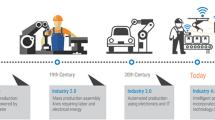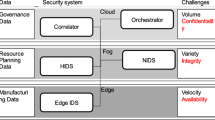Abstract.
In a previous paper, the concept of a Generic Non Standard-specific Information Flow System (GNSIFS) was discussed [1]. The main feature of GNSIFS is that it can perform data exchange among a group of manufacturing systems, regardless of the operating systems or standards being used. Further research in this field shows that, to enhance the capability of GNSIFS, the database system of GNSIFS, which is considered to be the key constituent of the whole system, should consist of a relational data model that is to be complemented with a free format data model. In addition, the ‘reasoning’ capability of this information flow system can also be advanced if a Rule Knowledge DataBase (RKDB), together with the associated inference engine, can be included in the GNSIFS, resulting in the formation of a Hybrid Manufacturing Information System (HMIS) which manages the information flow from a combination of relational, free format and rule knowledge data models. This hybrid information management feature is favourable to the progressive advancement of the ‘reasoning’ nature of the system, and at the same time, has the benefit of relational data processing. This paper describes the architecture required for the formation of this Hybrid Manufacturing Information System (HMIS), and tests this system in a real company to evaluate its viability in an industrial environment.
Similar content being viewed by others
Author information
Authors and Affiliations
Rights and permissions
About this article
Cite this article
Chung, W., Lau, H. Development of an Architecture for a Hybrid Manufacturing Information System. EWC 16, 1–9 (2000). https://doi.org/10.1007/s003660050031
Issue Date:
DOI: https://doi.org/10.1007/s003660050031




